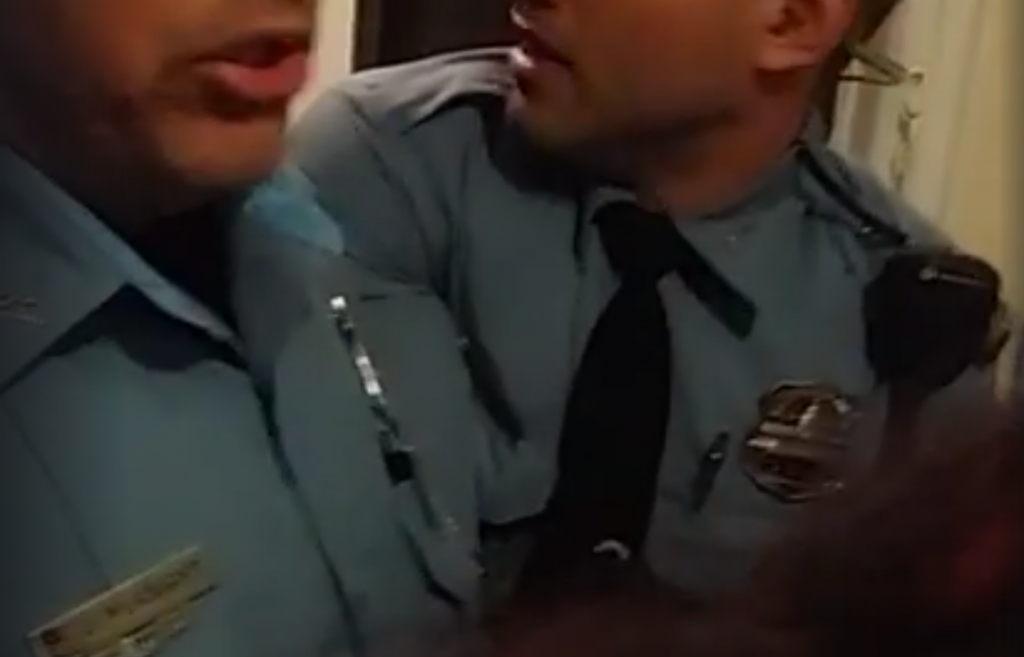
On Tuesday February 28th, the ACLU filed suit against the Metropolitan Police and city of Washington D.C. for unlawfully entering the home of Lourdes Ashley Hunter, the executive director of the TransWomen of Color Collective (TWOCC) and a self-described revolutionary.
One day after the November election and one day before the White House Transgender Community Briefing, police officers responded to a call from two residents complaining about some noise emanating from a party in Hunter’s third floor apartment. Responding to the call, four police officers came to the scene. One of the neighbors accused Hunter of assault, causing the policemen to pursue her in her own home.
After withdrawing into her apartment, the police officers “grabbed [Hunter] by her arm and neck” according to the complaint put forth by the ACLU. The exchange between Hunter and the policemen was captured on video and posted live to Facebook, showing an officer clutching Hunter’s wrists while accusing her of resisting arrest. All the while, she screamed, “let me go!” She was detained from 11pm to 3am, with just enough time to get ready to attend the event at the White House.
The Case
The ACLU’s case is a strong one. For one, D.C. law forbids the police from arresting anyone for a misdemeanor that occurs prior to their arrival. In the present case, Hunter wasn’t even given a chance to tell her side of the story before she was accused of assault and arrested. Furthermore, the Fourth Amendment prevents police officers from entering someone’s home without a warrant, which they are shown doing on video. Shana Knizhnik, the ACLU lawyer presenting the case, will pursue these two points in the lawsuit against the city and police of Washington D.C.
Cases like these serve at least two purposes. On the one hand, they have the potential to provide compensation to people who have been wrongfully treated by organizations (like police departments) that are, according to their mission, supposed to protect and serve. On the other hand, cases like these give visibility to a much larger phenomenon that extends beyond the scope of any one person. This is something that Hunter understands, being a seasoned activist.
The Scope
In an interview with the Huffington Post, Hunter poignantly states, “As a poor, black, trans woman, I was born out of and into activism.” She describes herself as “a healer, orator, academic and educator, a dismantler of oppressive systems, a descendant of enslaved Africans, freedom fighters and liberators.” Simply put, her goals and aspirations lie beyond the horizon of individual compensation and in the realm of ultimate liberation.
This is a lawsuit that has the potential to address 50 recent complaints by D.C. inhabitants regarding unlawful entry and unwarranted seizure by police officers. This is a lawsuit that can put violence against TPOC and TWOC front and center, something we need right now in the current political climate where all LGBTQ+ people exist in precarious conditions. In short, this is a lawsuit the country needs right now.



Leave a Comment